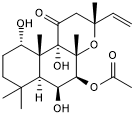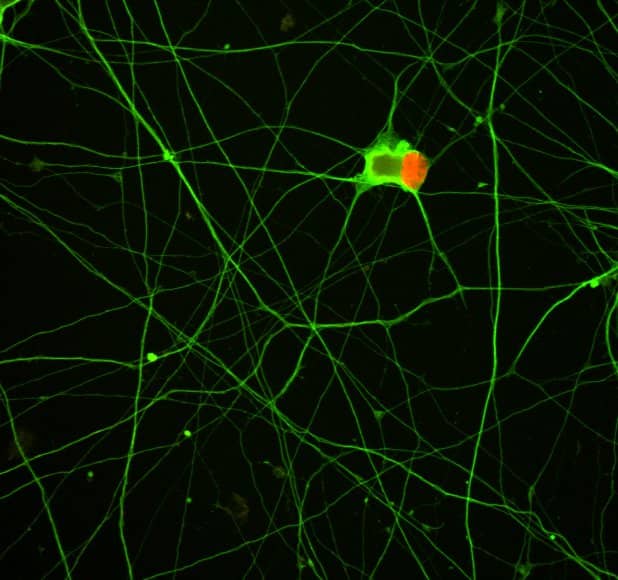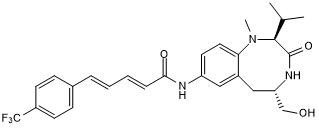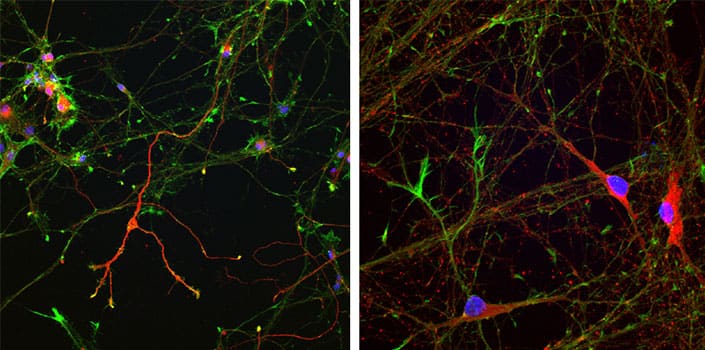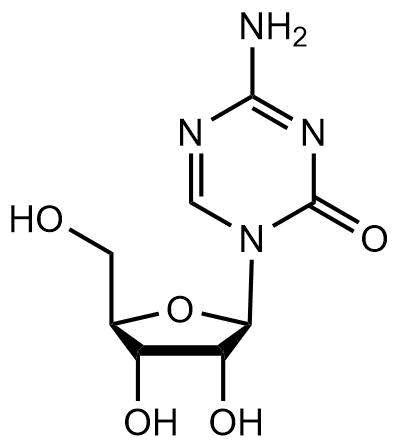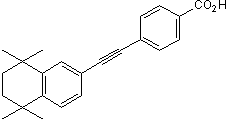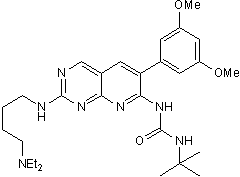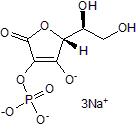Compounds for Stem Cell Differentiation: Small Molecules and Peptides
Stem cells have the ability to differentiate into specialized cell subtypes depending upon their level of potency. For instance, embryonic and induced pluripotent stem cells can give rise to cells of all three germ layers: ectoderm, mesoderm, and endoderm. Adult stem cells are generally considered to have limited potency and differentiate into a restricted number of cell types. In order to generate populations of specialized cell types for regenerative medicine, drug screening, or disease and development models, researchers must control and direct the differentiation of stem cells. Cell fate decisions can be directed by natural or chemically synthesized small molecules. For instance, a specific inhibitor of glycogen synthase kinase-3 beta can induce neuronal differentiation in pluripotent stem cells. Combinations of specific cytokines and sodium butyrate, a histone deacetylase inhibitor, have been shown to direct the differentiation of stem cells into hepatocytes. Tocris provides a complete range of bioactive small molecules to control the differentiation of stem cells into defined derivatives.
57 results for "Compounds for Stem Cell Differentiation Small Molecules and Peptides" in Products
57 results for "Compounds for Stem Cell Differentiation Small Molecules and Peptides" in Products
Compounds for Stem Cell Differentiation: Small Molecules and Peptides
Stem cells have the ability to differentiate into specialized cell subtypes depending upon their level of potency. For instance, embryonic and induced pluripotent stem cells can give rise to cells of all three germ layers: ectoderm, mesoderm, and endoderm. Adult stem cells are generally considered to have limited potency and differentiate into a restricted number of cell types. In order to generate populations of specialized cell types for regenerative medicine, drug screening, or disease and development models, researchers must control and direct the differentiation of stem cells. Cell fate decisions can be directed by natural or chemically synthesized small molecules. For instance, a specific inhibitor of glycogen synthase kinase-3 beta can induce neuronal differentiation in pluripotent stem cells. Combinations of specific cytokines and sodium butyrate, a histone deacetylase inhibitor, have been shown to direct the differentiation of stem cells into hepatocytes. Tocris provides a complete range of bioactive small molecules to control the differentiation of stem cells into defined derivatives.
γ-secretase inhibitor; induces neuronal differentiation; blocks Notch signaling
| Chemical Name: | (2S)-N-[(3,5-Difluorophenyl)acetyl]-L-alanyl-2-phenyl]glycine 1,1-dimethylethyl ester |
| Purity: | ≥99% (HPLC) |
Adenylyl cyclase activator
| Chemical Name: | (3R,4aR,5S,6S,6aS,10S,10aR,10bS)-5-(Acetyloxy)-3-ethenyldodecahydro-6,10,10b-trihydroxy-3,4a,7,7,10a-pentamethyl-1H-naphtho[2,1-b]pyran-1-one |
| Purity: | ≥98% (HPLC) |
Potent and selective ALK2 and ALK3 inhibitor; inhibits BMP4 signaling; promotes neural induction of hPSCs
| Chemical Name: | 4-[6-[4-(1-Piperazinyl)phenyl]pyrazolo[1,5-a]pyrimidin-3-yl]quinoline dihydrochloride |
| Purity: | ≥98% (HPLC) |
Potent AMPK inhibitor; also BMP type I receptor inhibitor
| Alternate Names: | Compound C,BML-275 |
| Chemical Name: | 6-[4-[2-(1-Piperidinyl)ethoxy]phenyl]-3-(4-pyridinyl)-pyrazolo[1,5-a]pyrimidine dihydrochloride |
| Purity: | ≥98% (HPLC) |
Endogenous retinoic acid receptor agonist
| Alternate Names: | Tretinoin,ATRA |
| Chemical Name: | 3,7-Dimethyl-9-(2,6,6-trimethyl-1-cyclohexen-1-yl)-2E,4E,6E,8E,-nonatetraenoic acid |
| Purity: | ≥98% (HPLC) |
Selective ALK2 inhibitor
| Chemical Name: | 4-[6-[4-(1-Methylethoxy)phenyl]pyrazolo[1,5-a]pyrimidin-3-yl]-quinoline |
| Purity: | ≥98% (HPLC) |
Anti-inflammatory glucocorticoid
| Chemical Name: | (11β,16α)-9-Fluoro-11,17,21-trihydroxy-16-methyl-pregna-1,4-diene-3,20-dione |
| Purity: | ≥98% (HPLC) |
Glutathione (GSH) precursor; maintains stem cell function in culture.
| Chemical Name: | (2R)-2-Acetamido-3-sulfanylpropanoic acid |
| Purity: | ≥98% (HPLC) |
Histone deacetylase inhibitor
| Chemical Name: | Butanoic acid sodium salt |
Induces definitive endoderm formation in mouse and human ESCs
| Chemical Name: | 1-[2-[(2-Carboxyphenyl)methylene]hydrazide]heptanoic acid |
| Purity: | ≥98% (HPLC) |
LDN 193189 synthesized to cGMP guidelines
| Chemical Name: | 4-[6-[4-(1-Piperazinyl)phenyl]pyrazolo[1,5-a]pyrimidin-3-yl]quinoline dihydrochloride |
| Purity: | ≥99% |
High affinity PKC activator; also APP modulator
| Chemical Name: | (2E,4E)-N-[(2S,5S)-1,2,3,4,5,6-Hexahydro-5-(hydroxymethyl)-1-methyl-2-(1-methylethyl)-3-oxo-1,4-benzodiazocin-8-yl]-5-[4-(trifluoromethyl)phenyl]-2,4-pentadienamide |
| Purity: | ≥98% (HPLC) |
DAPT synthesized to Ancillary Material Grade
| Chemical Name: | (2S)-N-[(3,5-Difluorophenyl)acetyl]-L-alanyl-2-phenylglycine 1,1-dimethylethyl ester |
| Purity: | ≥99% |
Thyroid hormone; also promotes differentiation of oligodendroglial precursor cells
| Chemical Name: | O-(4-Hydroxy-3-iodophenyl-3,5-diiodo-L-tyrosine |
| Purity: | ≥98% (HPLC) |
Smo receptor agonist
| Chemical Name: | 9-Cyclohexyl-N-[4-(4-morpholinyl)phenyl]-2-(1-naphthalenyloxy)-9H-purin-6-amine |
| Purity: | ≥98% (HPLC) |
PDE inhibitor (non-selective)
| Chemical Name: | 3,7-Dihydro-1-methyl-3-(2-methylpropyl)-1H-purine-2,6-dione |
| Purity: | ≥98% (HPLC) |
DNA methyltransferase inhibitor
| Chemical Name: | 4-Amino-1-β-D-ribofuranosyl-1,3,5-triazin-2(1H)-one |
| Purity: | ≥98% (HPLC) |
AMPK activator
| Chemical Name: | N1-(β-D-Ribofuranosyl)-5-aminoimidazole-4-carboxamide |
| Purity: | ≥99% (HPLC) |
5-HT reuptake inhibitor
| Chemical Name: | N-Methyl-3-[(4-trifluoromethyl)phenoxy]-3-phenylpropylamine hydrochloride |
| Purity: | ≥98% (HPLC) |
Endogenous agonist of LPA1 and LPA2
| Chemical Name: | 1-O-9Z-Octadecenoyl-sn-glyceryl-3-phosphoric acid sodium salt |
Selective JNK inhibitor
| Chemical Name: | Anthra[1-9-cd]pyrazol-6(2H)-one |
| Purity: | ≥98% (HPLC) |
Inhibits canonical Wnt signaling. Promotes differentiation of human ESCs and iPSCs into cardiomyocytes
| Chemical Name: | N-(6-Chloro-2-benzothiazolyl)-3,4-dimethoxybenzenepropanamide |
| Purity: | ≥98% (HPLC) |
Synthetic retinoid; induces differentiation of stem cells
| Chemical Name: | 4-[2-(5,6,7,8-Tetrahydro-5,5,8,8-tetramethyl-2-naphthalenyl)ethynyl)-benzoic acid |
| Purity: | ≥99% (HPLC) |
FGFR1 and -3 inhibitor
| Chemical Name: | N-[2-[[4-(Diethylamino)butyl]amino]-6-(3,5-dimethoxyphenyl)pyrido[2,3-d]pyrimidin-7-yl]-N'-(1,1-dimethylethyl)urea |
| Purity: | ≥98% (HPLC) |
Ascorbic acid derivative; maintains differentiation potential in bone marrow-derived MSCs
| Chemical Name: | 2-(Dihydrogen phosphate)-L-ascorbic acid sodium salt |
| Purity: | ≥95% (HPLC) |


